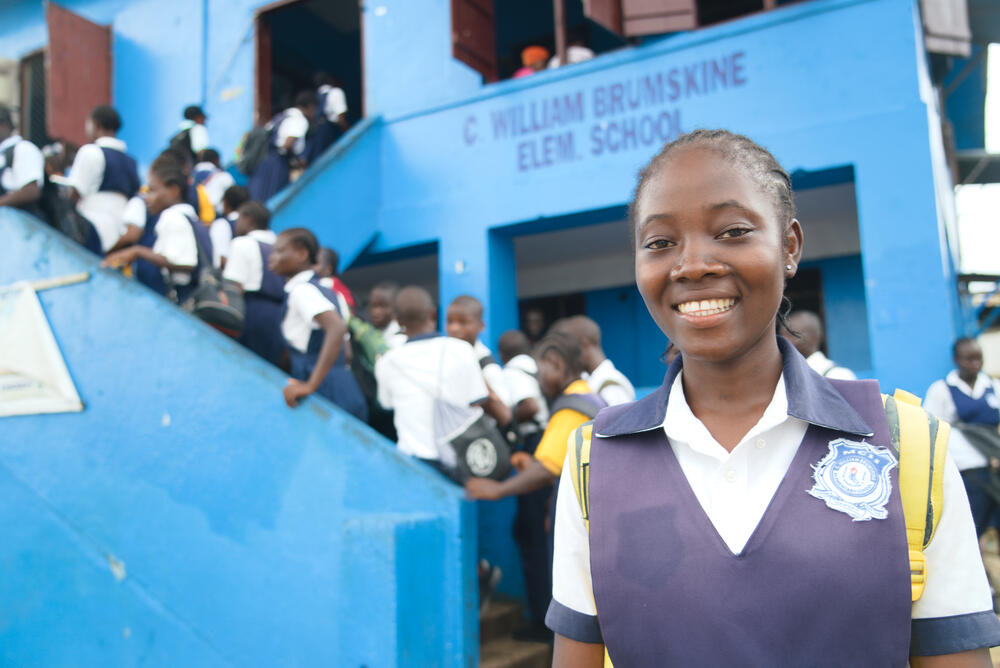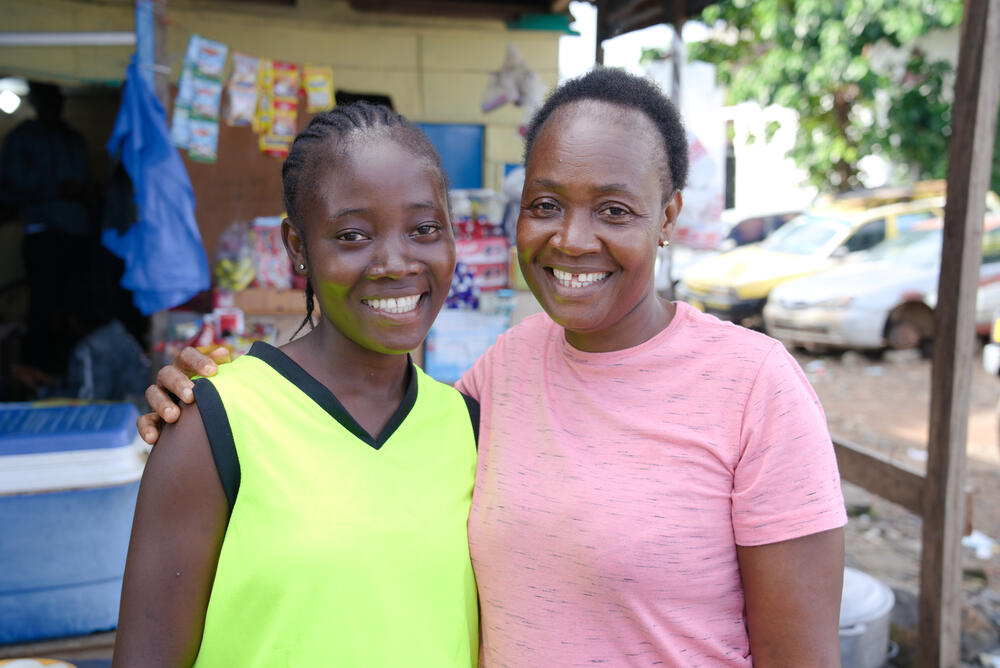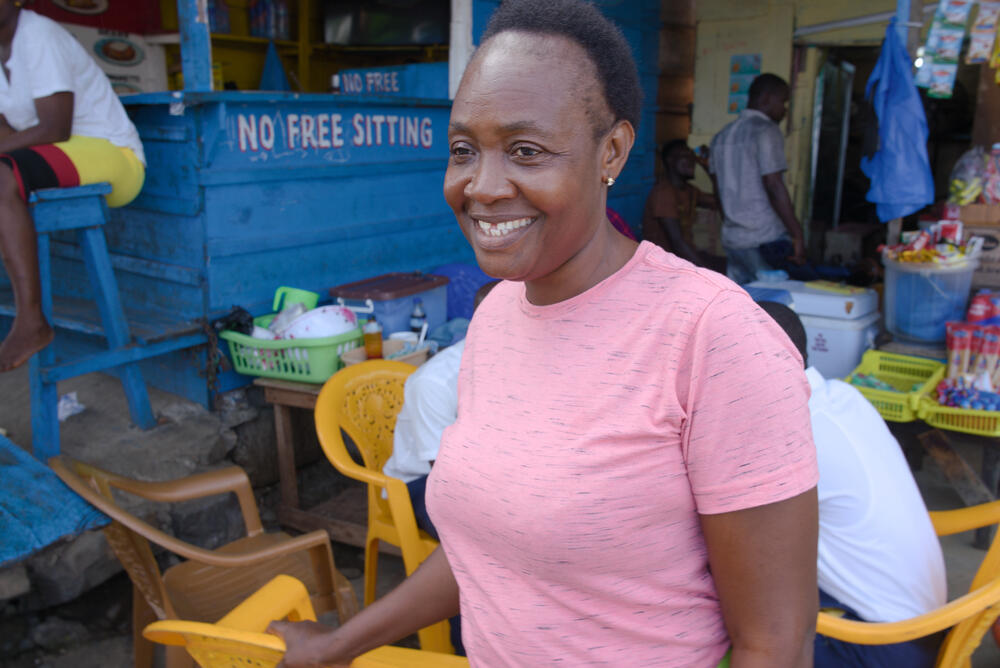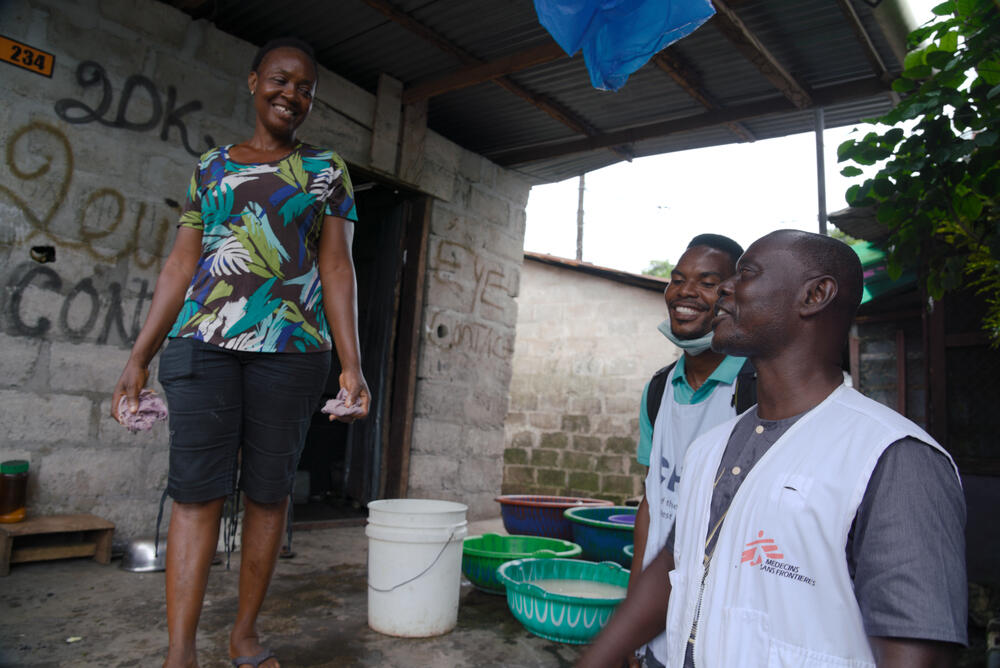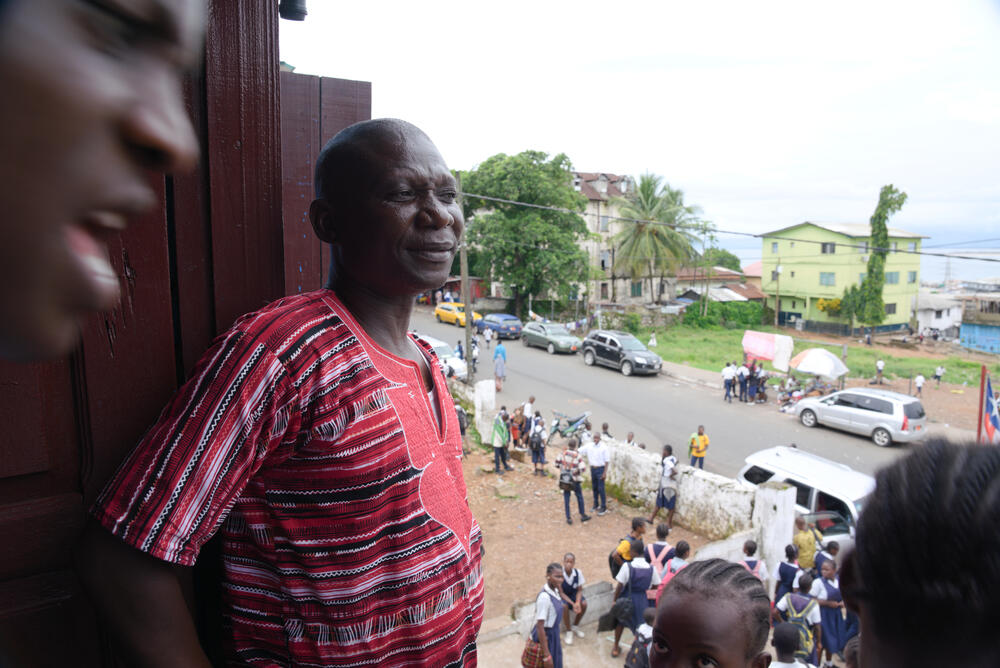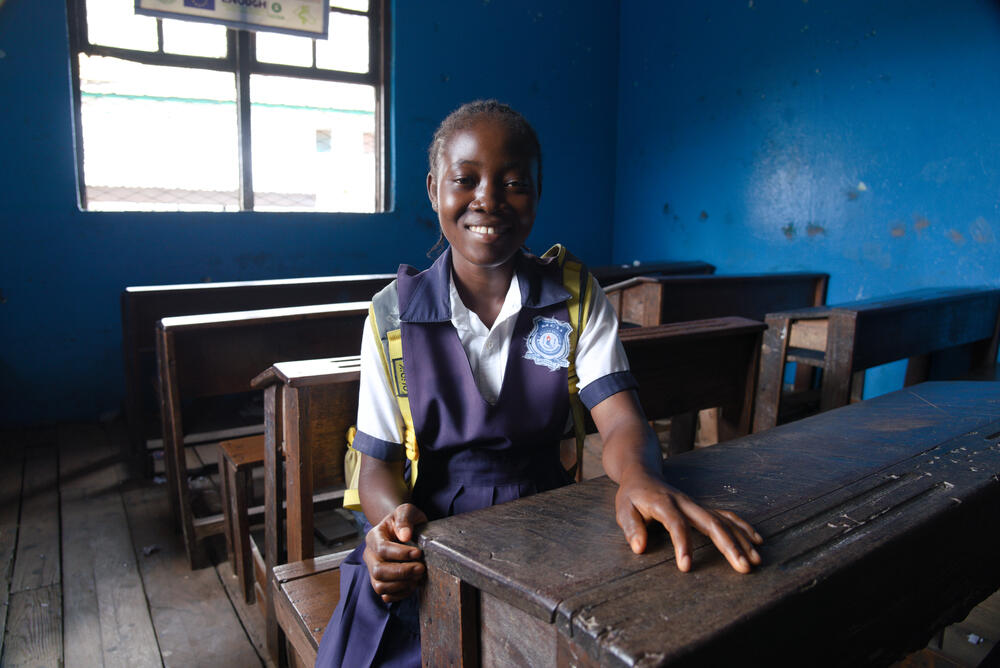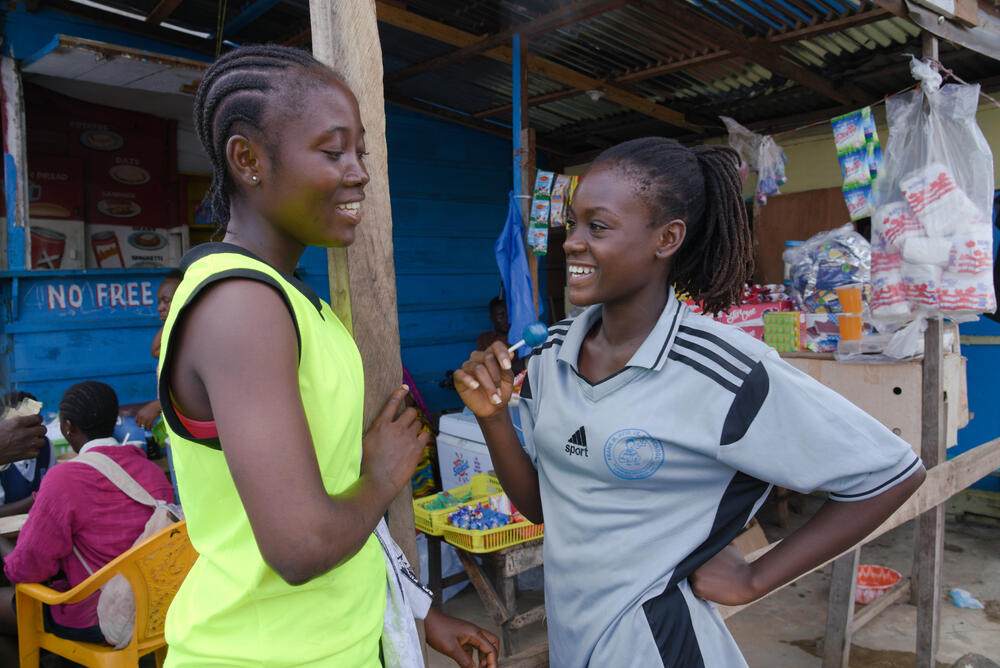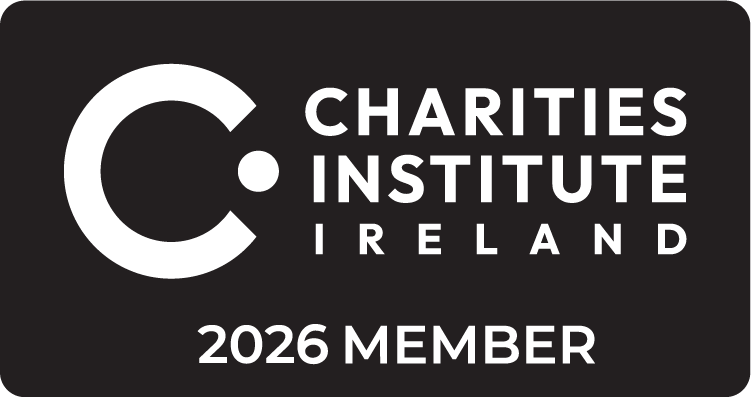"People with epilepsy can have a good life, they can be fine, they can be happy."
18 January 2023
When Mary*, a 15-year-old school student in Monrovia, Liberia, started having epileptic seizures last year, it was frightening and confusing for her and everyone around her. The Médecins Sans Frontières-supported epilepsy treatment programme at Star of the Sea Health Centre has helped her family and community understand the condition so that Mary can draw on their support to stay in school.
The first time Mary had an epileptic seizure and fell down, it was in front of her home. She woke up in her bedroom, her mouth sore, but with no recollection of what had happened. She thought someone must have pushed her. She was scared.
Over days and weeks the seizures recurred. Mary fell against the hard edges of the bathroom, and onto the rocky ground of her elementary school yard. The marks on her body added to the stigma of the seizures themselves. In Liberia—in fact, in many countries worldwide—the myths surrounding epilepsy are strong, including that epilepsy can be transferred to another person through the slightest contact.
“In Liberia, we grow up with the notion that when you touch a person [with epilepsy], definitely it will catch you,” explains Mary’s elder sister and caregiver, Annie*. “I've seen other people with epilepsy. We would be running from there, going ‘If you touch that, it will happen to you!’ We were so afraid.”
Mary’s school life was affected. After Mary fell while lined up in assembly, children made fun of her. “Sometimes when children would sit in class, they would be discussing it. When I heard that, I would feel bad. Sometimes they would say we shouldn’t eat together,” says Mary, though she was comforted by a close friend who stuck by and defended her.
"I didn't know how I was going to deal with this".
Annie, Mary's sister
Annie tried asking their parents, but they could shed no light. Although epilepsy, a neurological disorder, can be due to birth trauma, there can be other causes, with no hint of when it might reveal itself in a growing child. The sudden onset only contributes to another myth, that epilepsy is a spell.
Annie didn’t know what to do, but she hesitated to consult too many people. She wasn’t sure if someone was targeting her, through Mary. She was also uncertain how the church might help, and she knew hospitals charge a lot of money. “If you go to the hospital, and they say, ‘Bring 150, 200’, if you don't bring that, they won't touch you. If I have my 25 in my hand, or 50 dollars, I think of my home, my children [needing] to eat, or how will they go to school.”
Then her husband remembered Annie’s older friend in Westpoint, an area where Médecins Sans Frontières runs a clinic with the Ministry of Health. “When I called her to explain what's going on, she said, ‘Annie, bring the girl over. Come and try."
At the Star of the Sea Clinic, counselling and medical treatment go hand-in-hand to ensure people are correctly diagnosed and treated but also supported to manage the many social and emotional challenges they face. Mary’s diagnosis, and the start of free care and support, provided some clarity and relief. But also the news that she might have to stay on the anti-epileptic medication for up to two years.
If Mary, or her family’s, resolve faltered, the psychosocial team had a plan.
S Wonka Reeder Senior is a psychosocial worker at Star of the Sea, providing counselling and psychoeducation onsite as well as in the community in collaboration with the community health volunteer team. “When I came in, Mary was already on treatment, but she was not adhering; she was missing appointments,” he says. So Reeder connected with the health volunteers to organise a home visit, to try to understand what exactly was getting in Mary’s way.
“I kept going to the home every week. And gradually, Mary started to come for her treatment regularly. From there, I decided to move to Mary’s school. So we did two awareness sessions with the students in the school, though we didn't single her out. And everyone started to support her: the teachers, the students, and at home.”
T Abraham Thomas Queegbo II, vice-principal at Mary’s school, is proud of the support that the school has received and has in turn been able to give to Mary: “We have trained counsellors here at school. It helps her from being traumatised, from being distinguished from her friends. We say to her, ‘Do not feel bad about yourself. This thing is a sickness. You can still make your life.’”
In a country where many children are not receiving an adequate education, Queegbo is passionate about the importance of staying in school, “for children to know themselves, to value themselves in society, and achieve great things.”
Reeder has watched with satisfaction as Mary has gradually gained the confidence to take control of her illness and its impact on her life. “I don't go there [Mary’s home] frequently because she's independent now. She’s adhering to medication, and she knows when to come for it. She knows when to go to school, she knows when to study her lessons and she knows when to associate with people. If she comes to the clinic, even if we don't even have a session, she makes sure she sees me. It's a very cordial working relationship.”
"People with epilepsy can have a good life, they can be fine, they can be happy."
Mary
Annie looks back too on how things have changed. “I didn’t know how I was going to deal with this. I stopped her from drawing water on top of the well. I stopped her from cooking. Even going to the market, I was so afraid she might drop.” Now Mary can proudly cook, wash the dishes, sweep and clean the house, launder the clothes, and help Annie at her food stall. “People ask me, ‘How's Mary coming along?’ and I say, ‘She's all right.’ ”
Mary is also managing the conversation about epilepsy with maturity. “The medicine is helping. My friends asked about the sickness, and I explained it. They said it won’t make them stay away from me, that they will keep coming around me. When we’re laughing, we’re lecturing, it makes me feel happy.”
Mary has positive advice for other school children living with epilepsy: to take their tablets, keep doing what their mother asks them to do, go to school, and forget about having an illness. “They must not feel bad. People with epilepsy can have a good life, they can be fine, they can be happy.”
* Surnames have been withheld.
